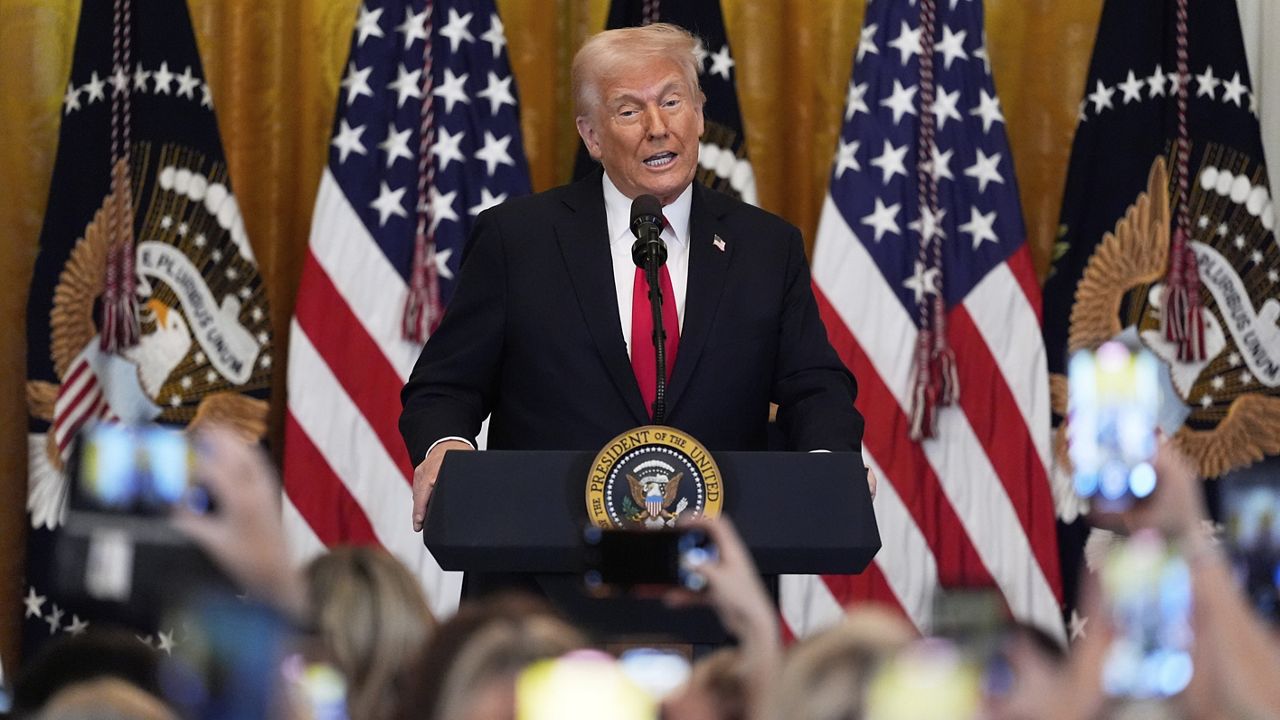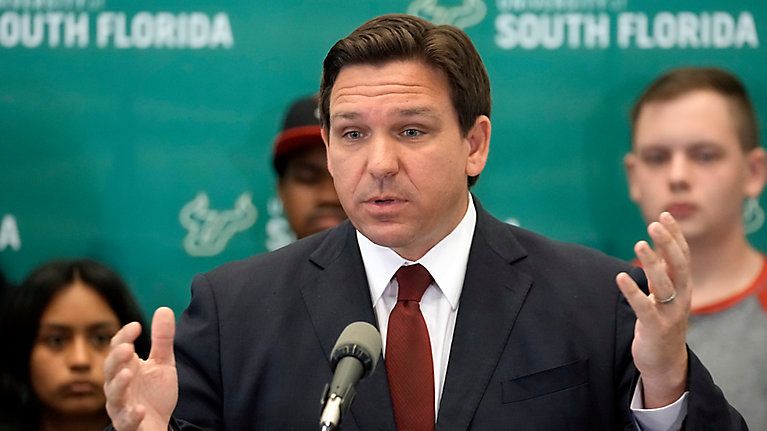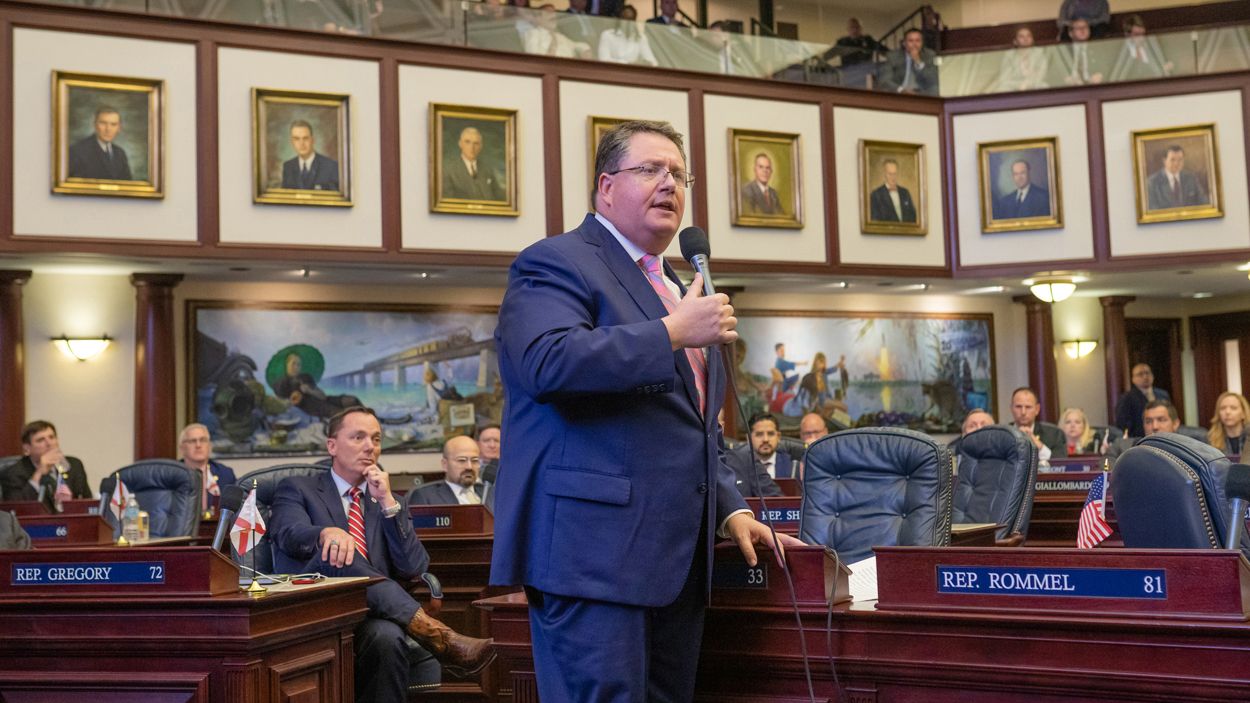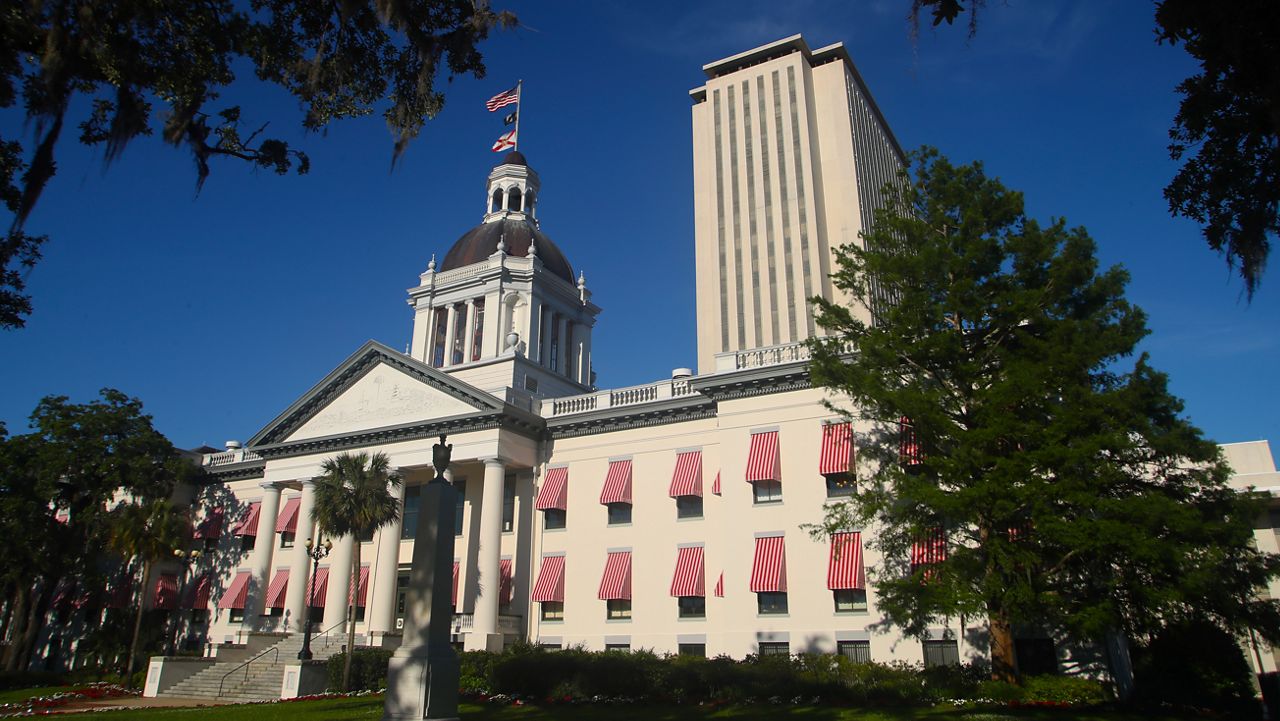Former President Donald Trump and Vice President Kamala Harris prepare for Tuesday's debate, and Republicans in the House release a report on Afghanistan.
What to watch in tonight's debate between Harris and Trump
Just over two months after President Joe Biden’s disastrous June 27 debate performance set the Democratic Party down an unprecedented path to replacing their presidential nominee, Vice President Kamala Harris will take the stage in Philadelphia to spar with former President Donald Trump on Tuesday as he makes his third bid for the White House.
At the moment, Tuesday’s ABC News-hosted debate is the only scheduled meeting between the two rivals before the November election and will likely be viewed by the largest audience either candidate will have before ballots begin to be cast.
Harris has been holed up in Pittsburgh since Thursday, prepping with her team and a former Hillary Clinton aide playing the role of Trump in debate practice sessions. Trump, meanwhile, was in New York late last week to make an at-times rambling economic speech and publicly litigate his appeal of a civil court verdict that found him liable for sexual abuse and defamation.
When asked about their process in recent days, Trump’s campaign has downplayed any prep work the former president is undertaking, arguing his public appearances and media interviews are all the practice he needs. Former Democratic Rep. Tulsi Gabbard, who clashed with Harris during the 2020 presidential primary, has been advising him on strategy for weeks.
“ABC, I think, is the worst of everybody," Trump said at the end of his 50-minute press conference addressing his civil court battles on Friday. "I think they’re the worst. They’re the nastiest. They’re as bad as you can be. They’re worse than NBC, which is saying a lot. I said I’ll do it anyway because even if [Harris] knows the answers and knows the questions, I don’t think she’ll be very good and this is not what our country wants. And I feel like I have an obligation to do it.”
In her brief public appearances since arriving in western Pennsylvania last week, Harris has expressed confidence about the debate and joked about how she “finally got out of the debate prep” to visit a spice store in Pittsburgh on Sunday.
“Well, there is a lot,” Harris said when asked what message she hoped to convey at the debate. “But look, it’s time to turn the page on the divisiveness. It’s time to bring our country together to chart a new way forward.”
A “New Way Forward” is what Harris’ campaign has dubbed its post-debate swing state tour, with the vice president being deployed to North Carolina and then returning to Pennsylvania later this week. Her running mate, Minnesota Gov. Tim Walz, will be in Michigan and Wisconsin headed into the weekend.
But first comes the debate at Philadelphia’s National Constitution Center, where both candidates will attempt to appeal to voters across the country, but particularly the host state of Pennsylvania. No Democrat has won the White House without winning Pennsylvania since 1948. Recent polls show Harris and Trump virtually tied in the state.
House Republicans release partisan report blaming Biden for disastrous end to U.S. war in Afghanistan
House Republicans on Sunday issued a scathing report on their investigation into the U.S. withdrawal from Afghanistan, blaming the disastrous end of America's longest war on President Joe Biden's administration and minimizing the role of former President Donald Trump, who had signed the withdrawal deal with the Taliban.
The partisan review lays out the final months of military and civilian failures, following Trump's February 2020 withdrawal deal, that allowed America's fundamentalist Taliban enemy to sweep through and conquer all of the country even before the last U.S. officials flew out on Aug. 30, 2021. The chaotic exit left behind many American citizens, Afghan battlefield allies, women activists and others at risk from the Taliban.
But House Republicans' report breaks little new ground as the withdrawal has been exhaustively litigated through several independent reviews. Previous investigations and analyses have pointed to a systemic failure spanning the last four presidential administrations and concluded that Biden and Trump share the heaviest blame.
Texas Republican Rep. Michael McCaul, who led the investigation as chairman of the House Foreign Affairs Committee, said the GOP review reveals that the Biden administration “had the information and opportunity to take necessary steps to plan for the inevitable collapse of the Afghan government, so we could safely evacuate U.S. personnel, American citizens, green card holders, and our brave Afghan allies.”
“At each step of the way, however, the administration picked optics over security,” he said in a statement.
McCaul earlier in the day denied that the timing of the report's release ahead of the presidential election was political, or that Republicans ignored Trump's mistakes in the U.S. withdrawal.
Johnson vows to forge ahead with government funding plan despite opposition from Democrats and some in his own party
House Speaker Mike Johnson on Tuesday said he is “resolved” to forge ahead with his efforts to tie a Republican-sponsored bill aimed at requiring proof of U.S. citizenship to vote to a short-term government funding measure despite a bevy of opposition.
Johnson's comments come despite the White House issuing a veto threat, Democrats blasting the proposal as “unserious” and even some in his own party questioning his approach with just weeks until government funding set to expire.
“I believe we can fund the government responsibly and I believe that we can do right by the American people and ensure the security of our elections and I defy anybody to give me any logical argument why we shouldn’t do that,” Johnson told reporters on Tuesday at the GOP House leadership press conference. “That’s why I am so resolute about this.”
The speaker noted that there is a key procedural vote on Tuesday on the funding measure linked with the bill that would require proof of citizenship to vote, after which he plans to bring the legislation to the full House floor on Wednesday.
“We’ll see what happens,” he said.
Johnson did not, however, explicitly rule out pursuing a so-called “clean” stopgap funding measure – known as a continuing resolution or CR – that would extend current government funding for a period of time without the election act attached. Instead, the speaker said he would not engage in the hypothetical and doubled down on his intent to move ahead with the current proposed legislation.
“I am resolved on this and I don’t know what more I can say to show that conviction,” Johnson said.
On the other side of the aisle, at their own leadership press conference on Tuesday, House Democratic Caucus Chair Pete Aguilar accused House Republicans of liking to “flirt with catastrophe” and urged GOP leadership “to put a serious CR on the table.”
Congress has three weeks to come to an agreement on a stopgap funding measure to buy time for a budget for the full fiscal year to be worked out and prevent a partial government shutdown on Oct. 1, weeks before a high-stakes election.
Johnson’s proposal would keep funding levels largely the same until the end of March 2025, punting the process of crafting a new budget to a new Congress and a new White House, potentially one occupied by former President Donald Trump should he win in November.
House Republicans argue the election measure, known as the SAVE Act, which would require proof of citizenship when registering to vote, is essential – especially in recent years when we’ve seen races won on thin margins – to ensure only Americans can participate in our elections.
The legislation passed the House on its own earlier this summer, with five Democrats joining their GOP colleagues to support it.










